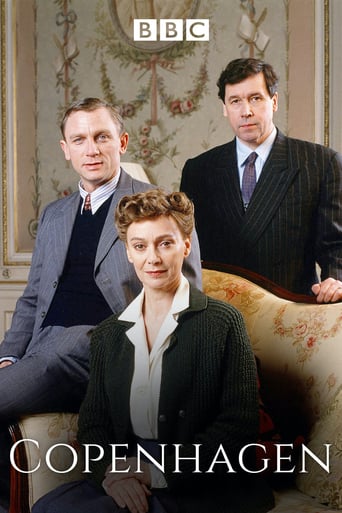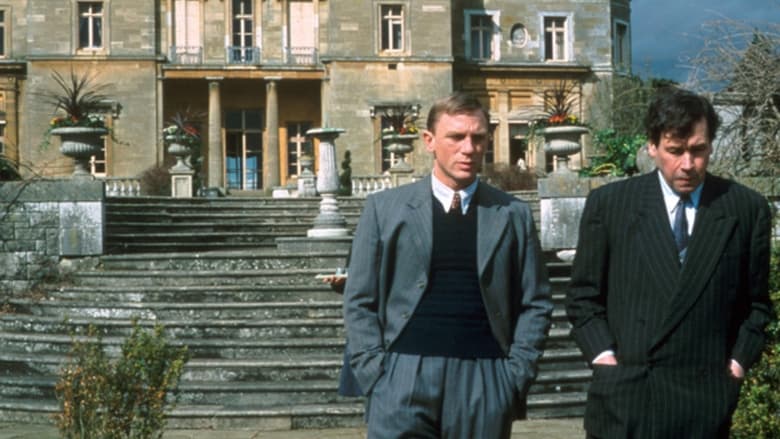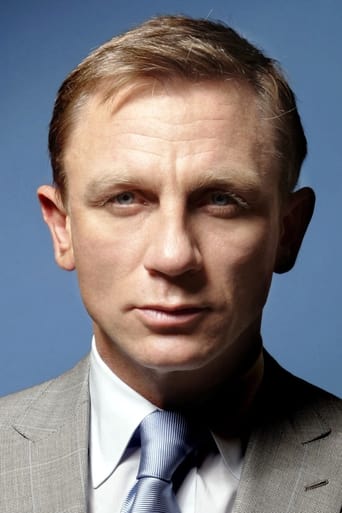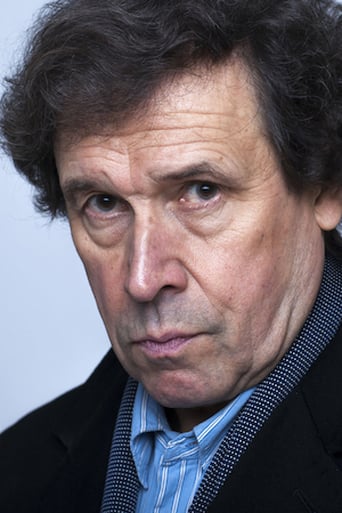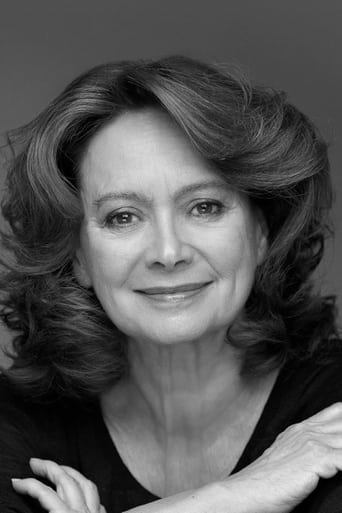Copenhagen (2002)
No one knows for sure what transpired when German physicist Werner Heisenberg met with his Jewish Danish counterpart, Niels Bohr, in Copenhagen -- the event became the stuff of modern scientific mythology. Director Howard Davies puts his spin on the momentous meeting that occurred one night in September 1941, during which the longtime friends entered into a dangerous discussion about physics and politics.
Watch Trailer
Cast


Reviews
I don't have all the words right now but this film is a work of art.
Blistering performances.
This movie tries so hard to be funny, yet it falls flat every time. Just another example of recycled ideas repackaged with women in an attempt to appeal to a certain audience.
The plot isn't so bad, but the pace of storytelling is too slow which makes people bored. Certain moments are so obvious and unnecessary for the main plot. I would've fast-forwarded those moments if it was an online streaming. The ending looks like implying a sequel, not sure if this movie will get one
I'm reviewing the TV adaptation here; other reviewers have pointed out that it differs from the play, and I can't comment on that.The structure of the play, which revisits an event multiple times without ever giving a "final" version, is clever and involving. The setting is stagey but convincing enough and at the play's heart is a fascinating and very serious moral dilemma.The dialogue, however, is toe-curlingly pretentious. We're treated to several conversations in which characters helpfully explain to each other things they already know. Worse, we get interminable voiceovers setting out everything for the audience in minute detail, even during scenes that seem to be intended to build dramatic tension.Portentious references to "uncertainty" and "complementarity" abound, but tell us little about either the science or the characters. The only moment when you're at risk of being exposed to any physics is a rather juvenile explanation of the Heisenberg Uncertainty Principle. Unfortunately this seems to completely miss the point it's trying to illustrate, perhaps because Frayn or the director is worried about scaring the audience or perhaps because one or both of them failed to understand it.There are things to like here, mostly about the large-scale structure and the subject-matter, both of which are genuinely interesting. All three actors do a decent job with what they have to work with, too. That was enough to get me to the end, but only just.
Caught this TV drama on PBS at midnight. Didn't know anything about the play. Thought it would be something a bit starchy and pompous, and in a matter of minutes I was glued to the screen, especially when Stephen Rea (plays Bohr) gets into action...Obviously, people know by now that the play is a masterpiece, but this BBC production in the hands of Howard Davies (director) makes a superb job of conveying something that was and/or might have been. All three characters become fully alive, but again I was hypnotized by Stephen Rea's amazing acting performance. The guy even looked Danish, he probably doesn't look like the real Bohr, but he invented a fully credible character, using eyebrows, stooped shoulders, awkward mannerisms the way a world-class physicist can display. For all aspiring actors, this performance is a must-see. And of course, the huge issue of whether Heisenberg was sincere, duplicitous, suspicious, naive...Frayn gives us all the possibilities. It seems Heisenberg is badly treated by history for having been in charge of the Nazi Atomic program. I re-read this sentence, and I think, well, duh...well it's not that simple, and I have to watch or read the play again. Howard Davies does an amazing job, making a dry a subject something fully engaging, even sensual, with the decor, lighting, costumes/hair/makeup. Camera works are amazing, using a rather contemporary vocabulary of sweeping movements, staccato- like shots, smooth editing, etc...And of course, the issues dealt in the play resonate a long time afterward watching it. I'm pouring over the net to get all kinds of infos. So for example, if the Alllies had not made the Atomic bomb, maybe the Germans wouldn't have either, since they were lacking crucial clues in the physics. But that's a chance the Allies didn't want to take.
"Copenhagen" explores a little known meeting between two top physicists, one German and one Danish, from several perspectives, all of them speculative, during WWII when theoretical physics was on the threshold of unleashing the power of the atom and creating the ultimate weapon. Originally made for the more refined and heady tastes of PBS viewers, this film delves into the esoterics of this meeting of the minds asking more questions than it answers and in doing so delivers much food for thought. I was attracted to the film because I majored in physics in college and found this ensemble drama fascinating. However, I watched "Romy & Michele's High School Reunion" last night and found it much more entertaining. Recommended for those relative few interested in the history of physics. (B)Note - If you watch this film, don't miss the epilogue.
I saw Michael Frayn's stage play 'Copenhagen' in London ... in fact, I was technically *IN* the play, as Peter Davison's set design seated some of the audience members onstage directly above the actors, like a tribunal sitting in judgment, and I chose to watch the play from one of these onstage seats. (I also saw the play on Broadway in the same circumstances, so technically I was onstage during both productions.) This brilliant drama is basically an interplay of ideas between three highly intelligent minds: a concept which works better onstage than in a film or a teleplay. So, when 'Copenhagen' was adapted for television by the BBC, I was eager to see how they would 'open up' this story ... and whether or not the transition would work.It works astonishingly well. During the Second World War, brilliant young physicist Werner Heisenberg was in Germany, working towards the Nazi government's efforts to develop a nuclear bomb. Meanwhile, Heisenberg's older mentor and friend, Niels Bohr, was working quietly in his native Denmark (under Nazi occupation at the time) along with his wife Margrethe. Bohr's wife was not a trained physicist, but many people who knew the Bohrs stated that she was an active partner in his work, and that Mrs Bohr deserves to share credit for Bohr's achievements. In 1941, Heisenberg journeyed to Copenhagen to visit his old friends the Bohrs, although their disparate allegiances during the war had strained the friendship. To this day, historians debate why Heisenberg visited the Bohrs at this time. Also debated is Heisenberg's loyalty to the Nazi cause. Did Heisenberg actively try (and fail) to develop an atomic bomb for the Third Reich? Or was Heisenberg secretly an anti-Nazi who covertly harmed the German war effort by pretending to work on the bomb whilst sabotaging his labmates' efforts? As with the assassination of JFK, there are many different theories as to what 'really' happened here. Heisenberg devised the Uncertainty Principle of quantum physics, so it's ironic that we can never be certain about what really occurred in Copenhagen.The TV version of 'Copenhagen' is brilliant. The action is opened up by having Heisenberg journey to Copenhagen (on a vintage 1940s railway train) while an internal monologue plays on the soundtrack. When he meets the Bohrs, the three of them stroll through various (extremely beautiful) buildings and landmarks in Copenhagen, with an occasional Nazi soldier walking past to remind us that Denmark is effectively part of the Third Reich. The period detail is impeccable throughout, and the locations are a delight to look at.The script of this teleplay is actually superior to the stage version. In the stage play, after Bohr is identified as 'the pope of quantum physics', his wife replies: 'yes, you were the pope ... but Einstein was God'. This is a cheap joke, meant to raise a laugh from audience members who recognise Einstein yet who lack of knowledge of Bohr's achievements. With due respect to Einstein, the historical fact is that Niels Bohr achieved far more in the field of quantum physics than any other three scientists combined, including Einstein ... so I was grateful that the Einstein joke was removed here. (Einstein's achievements were in relativity, not quantum theory.) Another, much better line from the stage play is retained, when Heisenberg contemplates the concept of 'quantum morality' ... in other words, the journey from Good to Evil (or vice versa) can only be made in a single quantum leap, with no gradual transition from one state to the other. Intriguing!I wish that the script of 'Copenhagen' (stage or screen version) had included a crucial irony which was mentioned in the playbill of the London production: namely, that most of the important work in the development of the atomic bomb was achieved by Jewish scientists, precisely **because** of policies implemented by the Nazi government. In Nazi Germany, applied physics was considered a much more prestigious field of research than theoretical physics, so Jewish scientists were shut out of employment opportunities in the former, and they concentrated their research efforts in the latter ... which was the field that developed the atomic bomb.The excellent actor Stephen Rea does fine work as Bohr, and his castmates are splendid too. If you're looking for car chases or action sequences, 'Copenhagen' is not for you. But if you want to experience brilliant acting, sumptuous locales and an exchange of provoking ideas, then I recommend 'Copenhagen' ... and I rate this TV movie 10 points out of 10. This fascinating drama won't Bohr you. (Sorry, I couldn't resist!)

